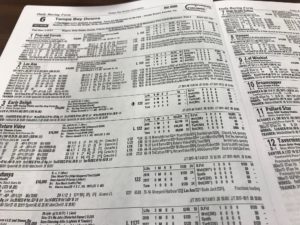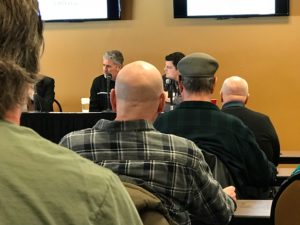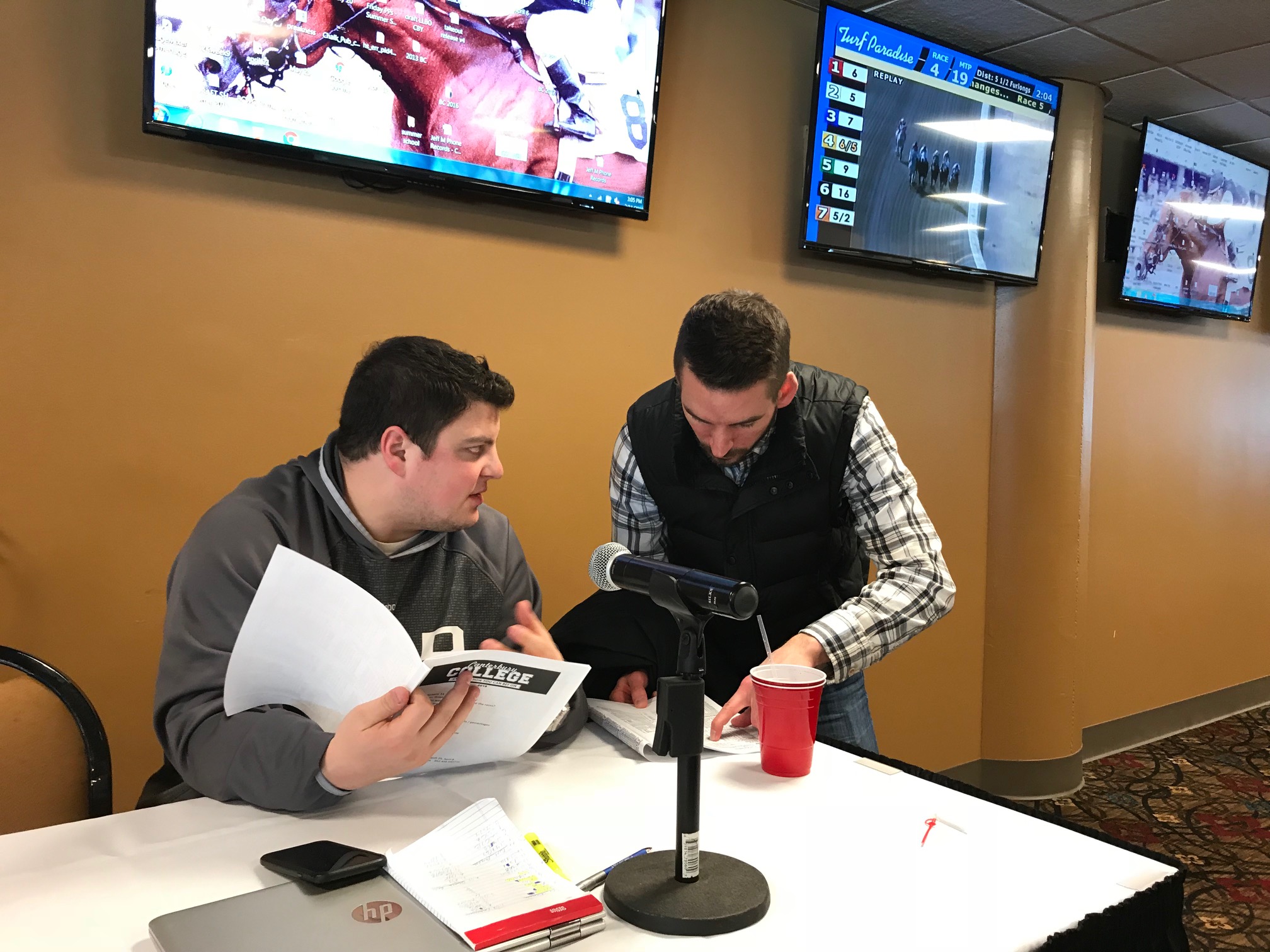
I love betting on horses at Canterbury Park.
I have no idea what I’m doing.
I’m Kris Janisch, a new member of the marketing team here at Canterbury Park. Though I have always enjoyed my experiences at the track, I need a lot of work when it comes to handicapping. So I enrolled in Canterbury College, a free five-week course that teaches folks like me how to make their visits more fun and profitable.
And as I write this on Feb. 11, minutes from the end of our first week, I can say one thing: I can read a racing form.
No small feat, considering my previous reliance on… instinct when it came to placing my wagers during the live racing season at Canterbury Park. Those forms always looked like Greek to me, but now I know what those numbers and figures mean.
We didn’t even discuss betting during the first week of class. But I can see, as track announcer Paul Allen put it, that wagering on horses is “a mind-work game. It’s making money with your mind.”
Introductions

We opened with an informal discussion from our professors:
- Paul Allen, KFAN personality and Canterbury Park track announcer
- Brian Arrigoni, Paddock analyst at Canterbury Park
- Jeff Maday, Canterbury Park handicapping expert
Our primary goal for Week 1, Allen said, was gaining the ability to read a daily racing form: how the horses ran previously, lifetime statistics, data on the trainers and jockeys, and more. But they also want us to understand how to take that information and use it to predict the outcome of a race.
“We want you to feel like you have an angle,” Allen told nearly 200 of us.
The idea isn’t to master every aspect of betting on a horse race, he said. It’s more about finding your niche.
“Have an identity, get good at a few things,” Allen said.
For Arrigoni, every race is a puzzle, and horse players work to make those pieces fit.
Maday, meanwhile, likened betting on horses to playing Blackjack and being able to see your two cards before you decide whether you want to place a bet.
They talked about how betting on horses is really a competition against other handicappers. How the odds change depending on what the betting public is doing. And how you can use the available information to gain an advantage.
Watching a Live Race
Without going into the details of how to read a form (and my head was swimming until we had done it a few times), it was fascinating to see how our professors used the data on the form to predict the outcome of a race.
We watched two live races during our class, one from Tampa Bay Downs and another from Turf Paradise in Arizona.

Arrigoni went over the past performances listed on the form to make an educated guess as to how the race would be run: This horse would start out fast but fade late; that horse has moved down in terms of its competition; this horse should be the likely winner.
And in both cases, the races were run almost exactly as he and Maday had anticipated.
That’s the fun of betting on horse racing, seeing the horse you selected win as a result of your research, Maday said. (The money is nice too, of course.)
Looking Ahead
It feels almost odd to be so excited about having a fundamental understanding of how to read a racing form.
But I’m even more looking forward to using that baseline to place actual bets. Allen discussed “finding vulnerable favorites” in races and exploiting value plays to win money.
The intimidating part of looking at a racing form is that there is so much information available. Simply knowing what the running lines mean has opened the door to a world of knowledge for me. And hopefully profits.
I do know, however, that I have a long way to go before I consider myself anything but a rookie handicapper.
“There’s no easy answer,” Arrigoni said. “That’s what makes it fun.”
Check back in about two weeks for the second installment of this blog series.
Registration for the current series of Canterbury College is closed. However, Canterbury Park does offer one-day classes for a small fee, which includes race day admission, once the live racing season begins. Details to come.
